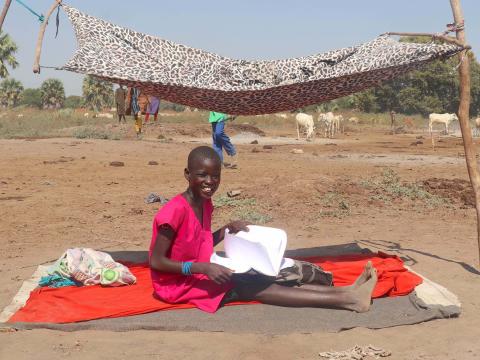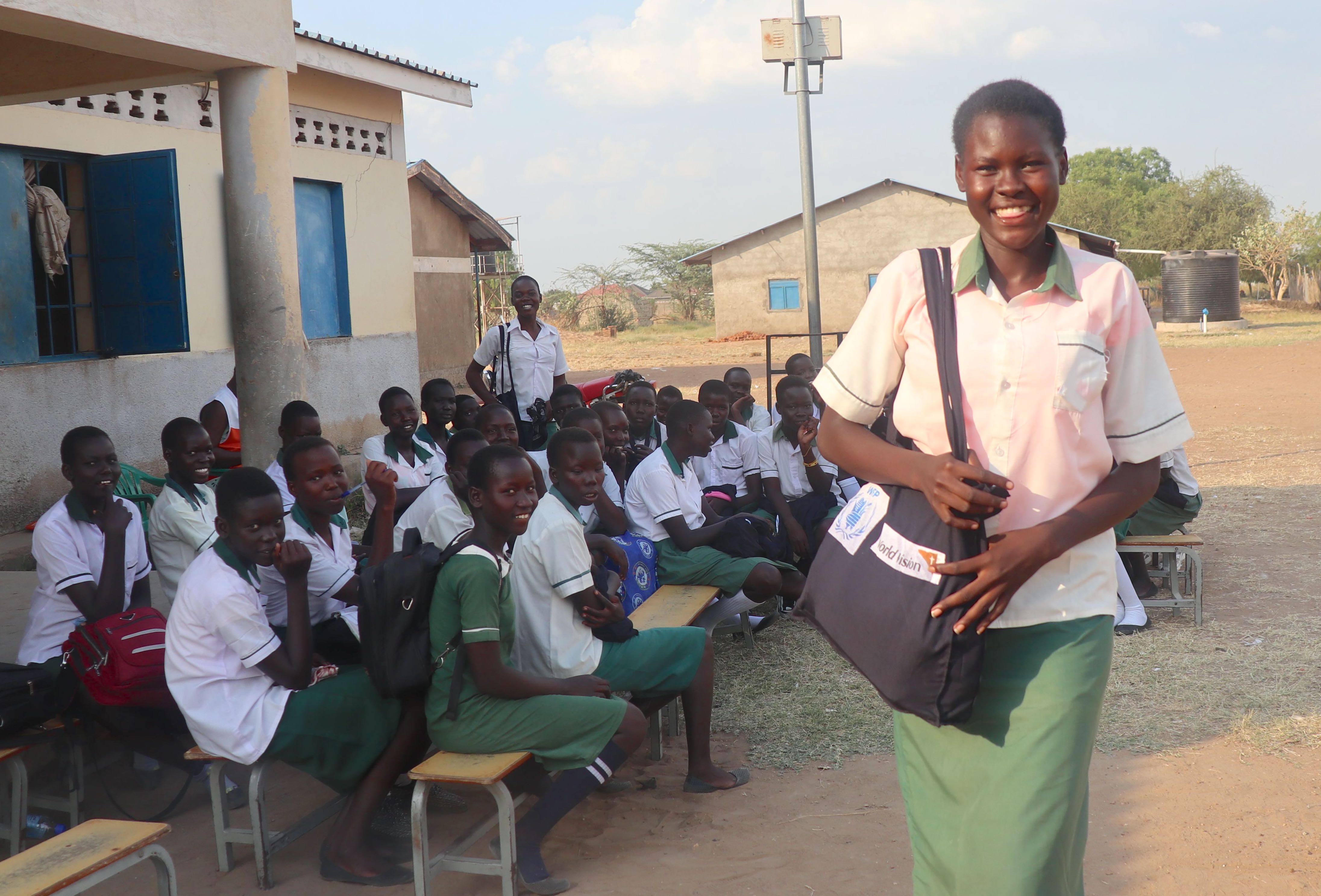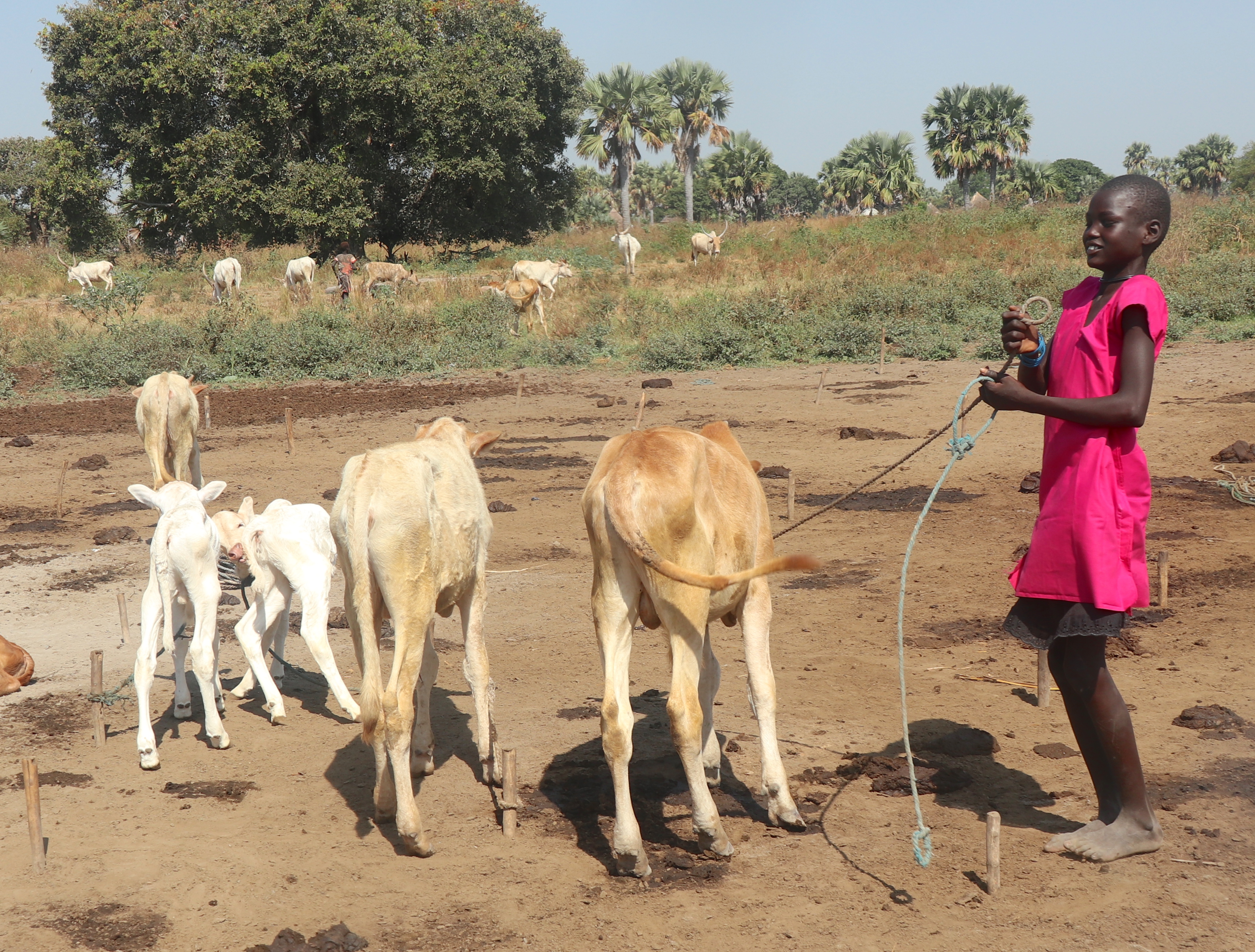Let’s create more learning access and opportunities for girls in South Sudan

My three years working for World Vision education sector is an exciting period. Each year comes in with unique challenges providing me the experience that reinforced my career goal – education for girls.
Indeed girls remain the most marginalized in South Sudan, particularly in crisis affected communities. Even at an early age, girls are already bartered off by family members for dowry while boys are sent to school.
UNICEF reports that over “2.8 million children, or over 70 per cent, are out of school in South Sudan, putting at risk their futures and the future of the country. Some of the out-of-school children are living in pastoral communities, moving with their cattle and are not able to attend regular classes.”

The report further adds, “The largest group of out-of-school children in South Sudan are girls.” Its findings identify “poverty, child marriage, cultural and religious views” as barriers to girls’ education.
Celebrating Education Day this year makes me remember when World Vision handed over12 newly-constructed classrooms in 2019 in Western Equatoria State. They provided hope to the community.
Through education, children can become a formidable force for change - socially, economically and politically. Preparing them for a bright future is actually what will make the world we dream about.
World Vision supports in many ways to transform learning such as the successful distribution books of 150 stories written by teachers and learners in Tambura translated from local language into English.
Many girls report early marriage, negative peer group pressures and early pregnancies as the main causes of dropping out of school. What we need is stronger advocacy this 2022 to listen to these voices and act.
The establishment of reading corners in several schools to support reading and learning build the children’s interested and skills.
In response to the strategic development goals and in line with World Vision’s strategy, our education programming rise to another level by making learning safe, inclusive, of high quality and interesting to attract more learners.
It is also closely integrated with key sectors such as protection, WASH, food assistance, peacebuilding among others, as part of building life skills.
Faith leaders are in full support to education initiatives and are staunch advocates acknowledging that for the country to prosper, its future generation must be educated and equipped to lead.

Many girls report early marriage, negative peer group pressures and early pregnancies as the main causes of dropping out of school. What we need is stronger advocacy this 2022 to listen to these voices and act.
Boys and girls confirm many parents prefer to send boys to school because they consider their daughters as sources of income through dowries. Men also prefer to marry girls who did not go to school. This should stop.
Through a more proactive education and protection activities, World Vision utilizes community engagement to educate parents and leaders that education is the universal right of both boys and girls. Nobody should be left behind.
Blog by Frank Lomoro, Education Technical Manager